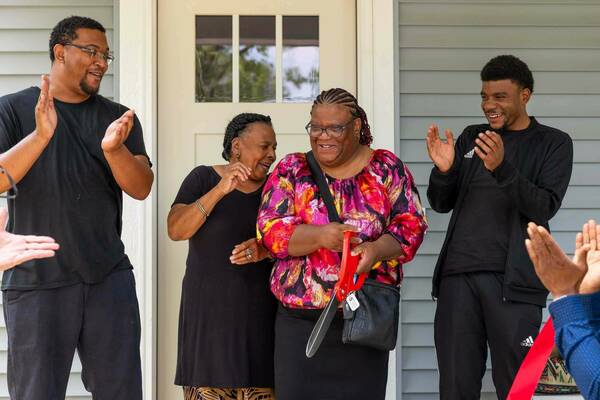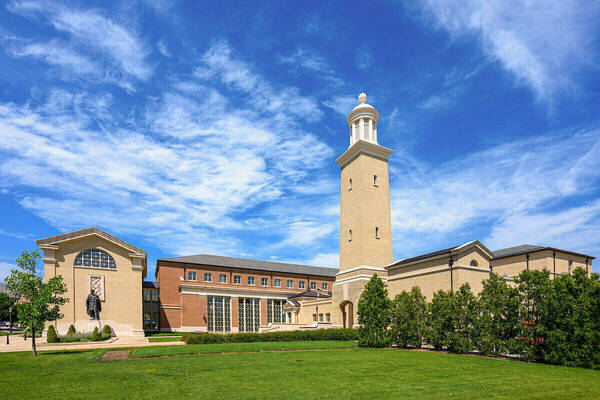Using robots in nursing homes linked to higher employee retention, better patient care
Facing high employee turnover and an aging population, nursing homes have increasingly turned to robots to complete a variety of care tasks, but few researchers have explored how these technologies impact workers and the quality of care.
A new study from a University of Notre Dame expert on the future of work finds that robot use is associated with increased employment and employee retention, improved productivity and a higher quality of care. The research has important implications for the workplace and the long-term care industry.
Yong Suk Lee, associate professor of technology, economy and global affairs at Notre Dame’s Keough School of Global Affairs, was the lead author for the study, published in Labour Economics. Most studies of robots in the workplace have focused on manufacturing and the industrial sector, but Lee’s research broke new ground by analyzing long-term care — and by looking at the different types of robots used in this setting. Researchers drew on surveys of Japanese nursing homes taken in 2020 and 2022.
“Our research focused on Japan because it is a super-aging society that provides a good example of what the future could entail elsewhere — a declining population, a growing share of senior citizens and a declining share of working-age people,” Lee said. “We need to be ready for this new reality.”
In 2022, for instance, more than 57 million U.S. residents were 65 or older, according to the National Council on Aging. The Census Bureau forecasts that by 2050, this number will grow to 88.5 million.
The impact on workers
In a future where there are more senior citizens requiring care, using robots in a targeted fashion could benefit workers and patients alike, Lee said. The study analyzed three types of robots that are increasingly used in assisted living facilities:
-
Transfer robots, which nurses use to lift, move and rotate patients in beds and around rooms.
-
Mobility robots, which patients use to move around and to bathe.
-
Monitoring and communication robots, which include technologies such as computer vision and bed sensors that can monitor patient data such as movement and share it with care providers.

“We found that robot adoption complements care workers by reducing quit rates,” Lee said. “This is important because turnover is a big concern in nursing homes. Workers typically experience a great deal of physical pain, particularly in their knees and back. The work is hard and the pay is low. So robot use was associated with employee retention.”
While robot use was associated with an overall employment increase, Lee said, the trend seems to have helped some workers more than others: It was associated with an increased demand for part-time, less experienced employees and with less demand for more experienced workers.
Improving patient care
Patients benefited in facilities that have used robots, according to the study. The nursing homes that Lee’s team studied reported a decrease in the use of patient restraints and in the pressure ulcers or bedsores that nursing home residents commonly suffer, largely because of a lack of mobility. Both metrics are widely used in the long-term care industry to measure patient outcomes, Lee said.
By removing the physical strain associated with certain tasks, Lee said, robots may have made room for care workers to focus on tasks better suited for human beings.
“Robots can improve productivity by shifting the tasks performed by care workers to those involving human touch, empathy and dexterity,” Lee said. “Ultimately, robots can help workers provide a higher level of patient care.”
“This research provides critical insights into how societies can successfully navigate the challenges of caring for aging populations”
The future of work
Lee co-authored the study with Toshiaki Iizuka from the University of Tokyo and Karen Eggleston from Stanford University. The study received funding from Stanford’s Shorenstein Asia-Pacific Research Center, Stanford’s Freeman Spogli Institute for International Studies Japan Fund and the Japan Society for the Promotion of Science, as well as the Keough School’s Liu Institute for Asia and Asian Studies and Kellogg Institute for International Studies.
This latest research fits into Lee’s ongoing work to examine how new technologies, including artificial intelligence and robotics, affect inequality and the future of work. Lee serves as program chair in technology ethics for the Institute for Ethics and the Common Good, a key element of the Notre Dame Ethics Initiative. He is also a faculty affiliate of the Keough School’s McKenna Center for Human Development and Global Business and a faculty fellow of the school’s Kellogg Institute for International Studies, Pulte Institute for Global Development and Liu Institute for Asia and Asian Studies.
“This research provides critical insights into how societies can successfully navigate the challenges of caring for aging populations,” Lee said. “It will help inform the work of the long-term care industry and help us better understand how technologies impact workers and patients.”
Originally published by at keough.nd.edu on Jan. 8.
Contact: Tracy DeStazio, associate director of media relations, 574-631-9958 or tdestazi@nd.edu
Latest ND NewsWire
- One year later, Inauguration Build a ‘dream come true’ for Habitat familiesOne year later, work on Inauguration Build 2024 is complete, offering shelter and so much more to five local families.
- Alumni Association and YoungND honor 2025 Domer DozenThe Notre Dame Alumni Association announced its 2025 Domer Dozen cohort, honoring 12 graduates ages 32 and younger for excellence in their contributions in learning, service, faith and work — the core pillars of the association’s mission.
- Faculty receive prestigious early career awards from National Science FoundationDuring the 2024-25 academic year, four researchers in the University of Notre Dame’s Colleges of Engineering and Science received early-career awards from the National Science Foundation.
- Notre Dame School of Architecture poised for global leadership through historic investmentThe $150 million gift represents an unprecedented commitment in the 160-year history of American architectural education. In recognition of this landmark gift, the school will be renamed the Matthew and Joyce Walsh School of Architecture at Notre Dame.
- Banks that identify fraudsters increase loyalty, retain more defrauded customers than others who never were compromisedIn a new research study, Vamsi Kanuri, the Viola D. Hank Associate Professor of Marketing at the University of Notre Dame’s Mendoza College of Business, found that banks that identify fraudsters earn customer loyalty and lose customers if they can’t say who was responsible for a fraudulent transaction.
- Notre Dame to host summit on AI, faith and human flourishing, introducing new DELTA frameworkThe Institute for Ethics and the Common Good and the Notre Dame Ethics Initiative will host the Notre Dame Summit on AI, Faith and Human Flourishing on the University’s campus from Monday, Sept. 22 through Thursday, Sept. 25. This event will draw together a dynamic, ecumenical group of educators, faith leaders, technologists, journalists, policymakers and young people who believe in the enduring relevance of Christian ethical thought in a world of powerful AI.














